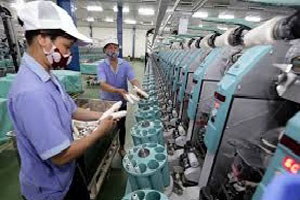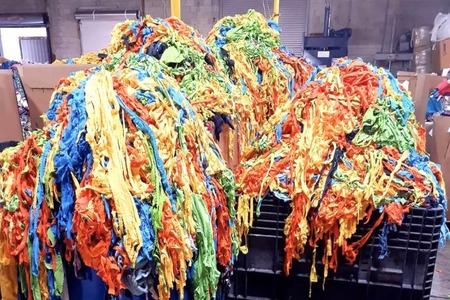
Vietnam textile production fails to meet garment requirements
YarnsandFibers News Bureau 2018-01-11 10:00:00 – HanoiVietnam textile industry is still facing many problems in textile production, as fabric determines the cost and quality of finished garment products hence textiles still cannot meet garment requirements, said Vu Huy Dong, general director of Damsan JSC.
Vietnam has to import 65-70 percent of fabric every year, it exports two-thirds of yarn output. This means that Vietnam has yarn in excess but not enough fabric.
In 2016, Vietnam’s fabric imports increased by 3.2 percent compared with 2015, though garment export value decreased by $23.84 billion, of which fabric export turnover accounted for 43.9 percent, down by 0.1 percent.
According to Nguyen Son, deputy chair of the Vietnam Cotton and Spinning Association (VCOSA), one of the reasons behind this is the market management scheme.
The State has policies to help the development of supporting industries, but there is no specific policy designed for the spinning and cotton industry.
He said that state-owned enterprises and foreign-invested enterprises only undertake favorable links in the textile & garment supply chain, while private businesses take difficult work.
However, private businesses are facing difficulties when developing their projects. Most provinces/cities have rejected their projects to open dyeing factories. As a result, a vicious circle exists in the textile & garment industry: Vietnam makes yarn, exports cotton, then imports fabric and exports garment products.
Vitas, affirming that textile and garment companies are facing difficulties, have made many proposals to the government. It has asked to amend Decree 60 on the conditions for granting licenses to import printing machines.
Under the current regulation, businesses owners must have junior college or higher-level degrees. If not, they have to attend MIC’s training courses majoring in printing to be able to import printers.
The association has also asked to remove the decision on raising the import tariff on polyester from zero to 2 percent, stating that most Vietnamese enterprises have to import the product. In addition, it had asked Hai Phong City to reconsider port fees to help enterprises cut production costs.
Market Intelligence
Ask for free sample Report

experience
Customer Base
dedicated team
Countries Served Worldwide









